HMV needs to know its own strength
Following Graham’s recent article about HMV’s buyout by restructuring specialists Hilco, it is worth taking a look at what lies ahead for this British institution. While the closure of getting on for half the UK stores suggests otherwise, HMV does have a promising future.
If your local store is one of those earmarked to stay open, you have the chance to play a game. Have a friend sit at home with their laptop, and pick a random artist. Now it’s time to race: your friend buys an album online, while you pop down to HMV.
Who will win? They will win, of course – unless you raced against your nan, there’s no way you could. According to many, the practicality of buying online compared to the high street is one of the main reasons for the latter’s demise. In the music industry, however, the former does have its limits.
One of the reasons you will lose, aside from the faff that is trying to get into a town centre, is that you will take an age looking in the store, and be distracted by the many other albums on offer, in genres you hadn’t even considered before – and this is where HMV’s key strength lies.
Before the days of iTunes and their ‘recommendation’ of music for you, how much musical knowledge was passed on by people flicking through records in shops, stopping when they found a sleeve that piqued their interest? Before the online revolution changed the way we listen to music, record shops provided a valuable plinth for new and emerging artists alike. Wasting a few hours in the shop, listening to new music with friends, is experiential marketing at its finest, which iTunes, for all its user profiles and social media links, cannot replicate.
The Internet has had some fantastic effects on the music industry, and the tribalistic days of mods and rockers are far behind us as musical tastes become more eclectic and open minded. More importantly, as Ed Sheeran and Lily Allen showed us, if you have the talent, it will be heard eventually, spreading naturally as people, with genuine belief that it will be enjoyed, post to each other’s Facebook and (back in the day) Myspace – a refreshing change from the manufactured drivel that is pushed upon us.
For Lily Allen and Ed Sheeran, however, the Internet was just a tool; it was the culture of finding and sharing new music that was key to their success. Whether this culture continues to thrive online is debatable; log into Spotify and you are given a list of suggested tunes based on your previous activity, but this list is nowhere near as good as the recommendations a knowledgeable shop assistant can give you.
When Virgin Megastores first opened, they knew the value of service and customer experience, providing comfy sofas and headphones, allowing customers more time to relax and get lost in music, a lesson from the ’80s that HMV needs to learn. This all seems a bit idealistic, looking at record shops with the overwhelming bias of nostalgia, and where the experience may be pleasant but you are still liable to leave the store empty handed. If you’re not selling records, you’re not making money, right?
Truth be told, few people do make money from selling records any more; record companies can no longer just place a record on the market and rely on sales of the music itself. A few weeks ago when Beyoncé announced her Mrs Carter tour, tickets sold out in a matter of minutes with fans paying up to £350; this, coupled with her endorsements and merchandise, show where the real money lies.
The rise in popularity of electronic dance music in America has created a market for musicians ghost writing music for bigger artists, to help sell out their arena shows. Beyoncé and these ‘artists’ (naming no names, they know who they are!) may seem like an extreme example, but for many genuine musicians, releasing records is merely a publicity exercise, bankrolled by tours and sponsorships. These records still need a platform, and this is where HMV, given the Virgin Megastores treatment, could excel.
By focusing on service and experience, HMV could turn its stores into a hub of music, a place for the nation’s audiophiles to come and indulge their passion, and share their findings with others. At present, this role is performed admirably by Facebook and YouTube, but HMV could be doing a far better job of it.
Early signs suggest that HMV’s new owners are adopting this strategy, and, as covered by Graham in his previous article, are opting for fewer but larger stores. Keeping the grander establishments in metropolitan areas, at the expense of the smaller, more isolated ones, will allow them to create more leisurely venues, in areas where people shop for leisure.
A captive audience of opinion-leading enthusiasts will have record company bosses falling over each other to reach them. In the same way that supermarket shelf space is a premium product, HMV will once again be a key player in the music industry.
Joe Errington is a music lover, record collector, and a marketing executive for MITIE.
Thank you to Mankind 2k for the use of his photograph of Newcastle’s old Virgin Megastore, which is © Copyright Mankind 2k and licensed for re-use under the Creative Commons Attribution 3.0 Unported Licence.

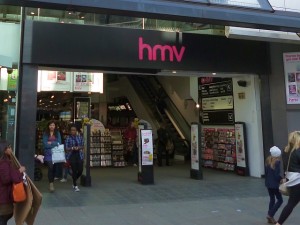


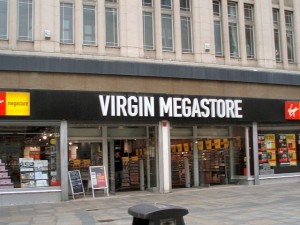
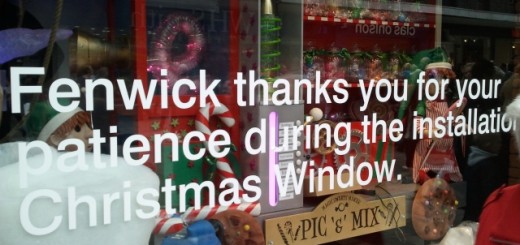
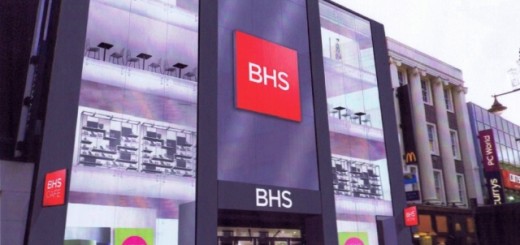

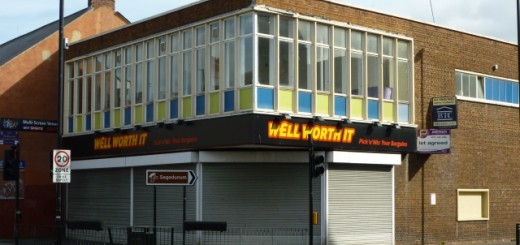



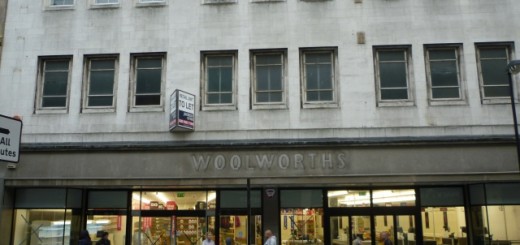

Yes the market for CDs has collapsed, but so has the market for recorded music. People just do not buy music in the same masses as they used to, even with the convenience of iTunes. As you said, its shrinking rapidly.
HMV should not have to rely on sales of CDs though. With the money now being in touring and sponsorships, HMV can be providing vital publicity and merchandising space that record companies will be willing to pay for, if the audience is there.
Just look at the size of the new One Direction store opened in New York, I admit this is another extreme example based on a modern day Beatlemania, but it gives you a good idea of where the industry is going.
And yes you’re right about the shop assistants, this is one area that must improve along with a major refit of the way stores are planned.
I think the above represents a bit of a fantasy on the author’s part and not a sustainable business in 2013. The idea of buying music on a physical circle of plastic in a physical environment is increasingly becoming alien. The market for CDs overall has totally collapsed; back-catalogue stuff is practically a niche market now, and chart will be in the same place before long.
People get to know and love music through friends now, that hasn’t changed – you’re right. The difference is, they share links to YouTube or Spotify now, or they sit in each others rooms, saying have you heard ‘blah blah blah’ then just playing it. It’s the dream come true; no record shop needed.
“knowledgeable shop assistant” (not something I’ve ever experienced at HMV, but ok – lets go with it) – well that’s just last.fm or Spotify Radio. OK – so there’s the computer vs. human argument but in my experience it does a bloody good job of it.
The author also fails to recognise that Virgin Megastores ceased returning profits a decade ago; their ultimate demise expedited (but not caused by) by the problems with Woolworths Group/EUK.
Spin it however you like, even if HMV were to grab ‘the whole pie’ by annihilating supermarkets, Amazon, Play.com and all the other e-commerce operations (which is not going to happen, but again, lets go with it) they’ll have the whole of a pie which itself is shrinking rapidly. Two years, max.